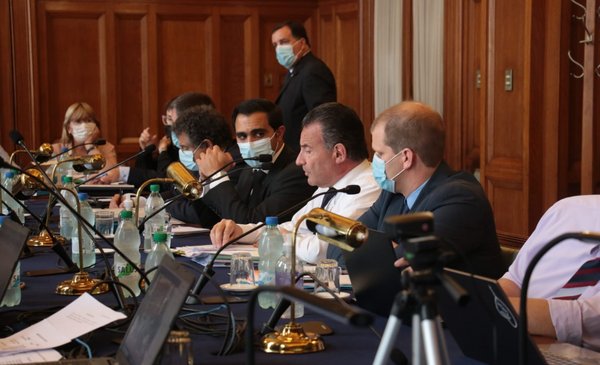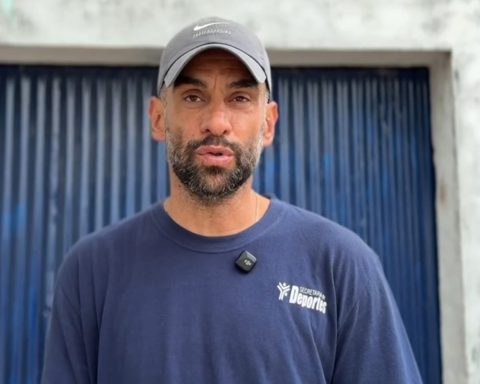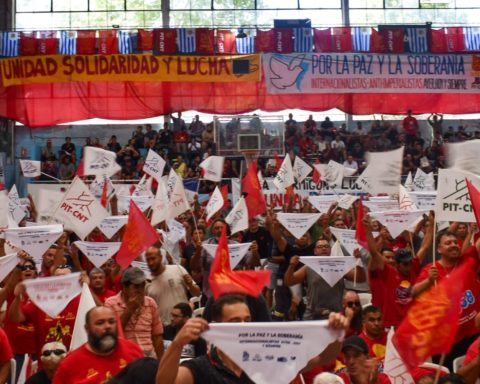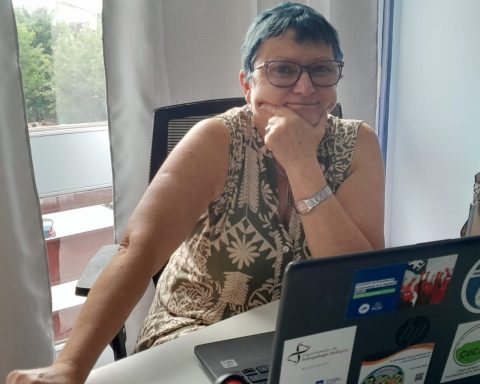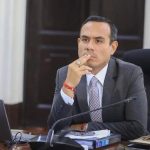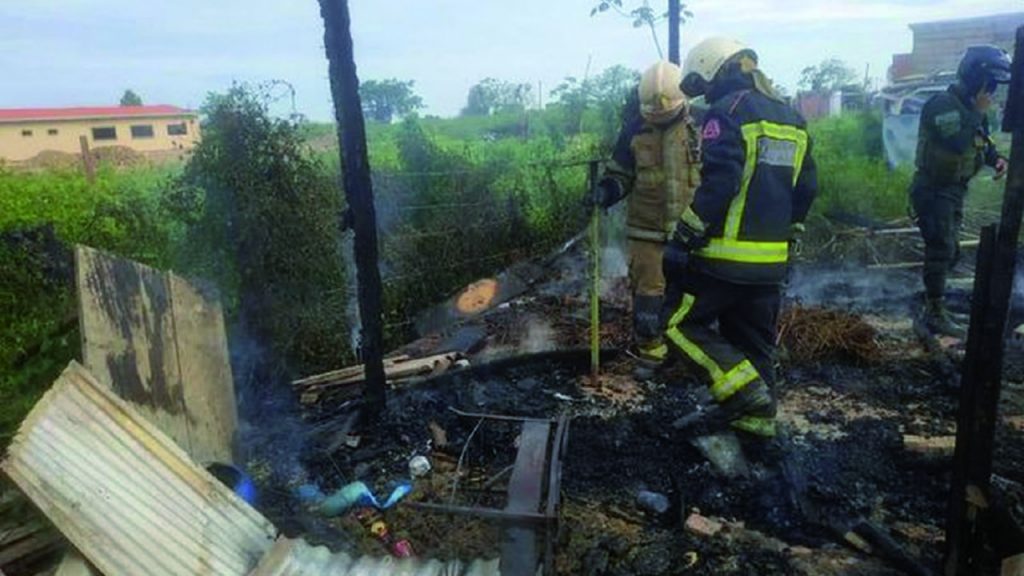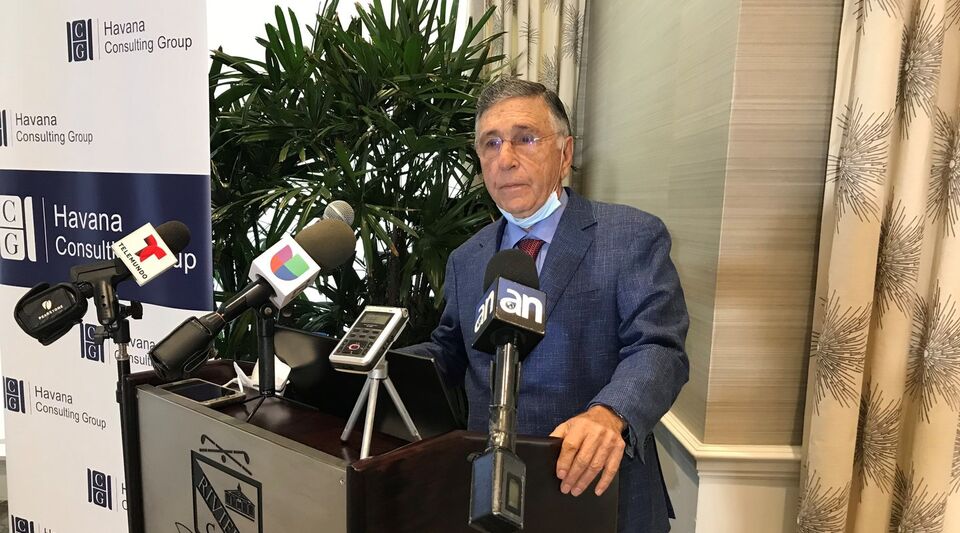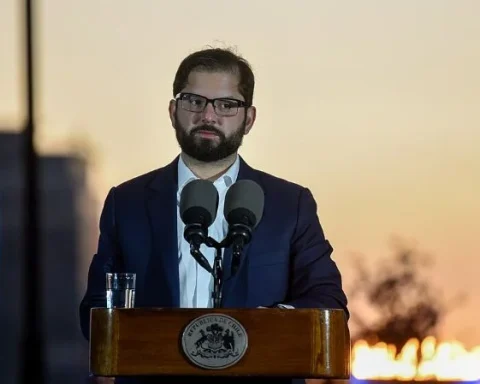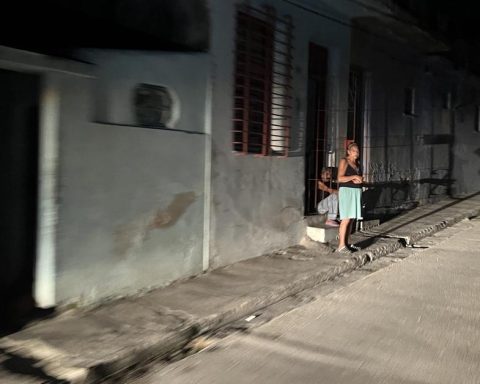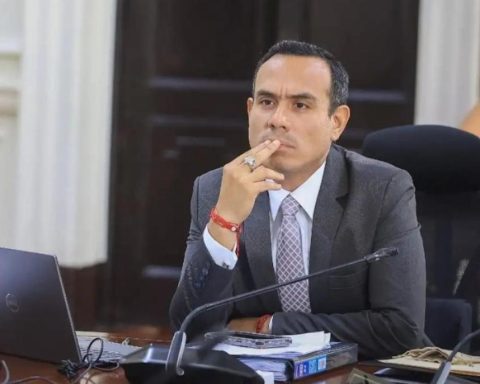In the few days that the government intervention has taken on Casa de Galicia, the authorities appointed by the Ministry of Public Health encountered a complex reality. In addition to a compromised cash situation, there was an administration “quite particular”, close to disorder, with irregularities and lack of documentation.
Thus, the ministry anticipates that the intervention work will be “complex” in terms of its management and the possibilities of carrying it out. This was stated before Parliament by a delegation that, headed by Minister Daniel Salinas, presented his vision of the panorama facing the century-old institution and the justification of the reasons why the possibility of the provider accessing another millionaire loan was rejected. and moved to the Board of Directors.
“This is an exhibition that is based on documents and facts”, Salinas made it clear, when he appeared at the last session of the Senate Public Health Commission, according to the shorthand version to which he agreed. The Observer.
There the minister justified the central point that kept him in recent weeks in a public controversy: the decision to reject an endorsement for Casa de Galicia to obtain access to a new trust, this time for US $ 12 million. According to him, the institution was very far from complying with a previous restructuring plan, with economic and financial results very far from what had been projected and promised. “I don’t want to do a media show, I just mean what is in the documents”, clarified the minister.
According to the Public Health figures, Casa de Galicia still owes 78% of the previous loans it had applied for. The last, a trust for US $ 20 million approved by the previous government and that began to be executed in January 2020.
In 2010, in turn, the institution had requested access to a guarantee provided for the IAMC Fund, which was approved in June of the following year. In December 2012, it issued public offering debt securities backed by said guarantee.
In 2015, a new access to this guarantee fund was requested in indexed units for a current equivalent of $ 683 million, plus a bridge loan for $ 170 million, in order to obtain a bank loan, granted by Banco República in May of this year.
In July 2019, he was finally granted access to the guarantee fund, for a total of $ 1,224 million in indexed units and $ 372 million.
According to the accountants who worked for the MSP, while the institution projected a negative balance of $ 215 million, from October 2018 to September 2019, the real result was $ 299 million. In the period October 2019 to September 2020, a negative result of $ 59 million was promised, but it ended up being a “red” of $ 285 million.
“There is a very distant degree of fulfillment of expectations in relation to the facts and the trust that the government deposited when granting that trust”, Salinas pointed out.
At the end of the fiscal year of September 2020, Casa de Galicia had 43,892 users, loqwhich represents a loss of 19% of affiliates compared to September 2015, with a negative profitability of 0.9%.
Another report cited by Salinas, from the Directorate of Social Health Security, indicates that the institution maintains a non-bank debt contracted under conditions “disadvantageous”, and that the total liability as of September 2020 amounted to $ 3,232 million, 14% more than in the same month of the previous year.
Its global deficit, as of May 2021, exceeded 21%, with a debt per member of $ 73,637. The deterioration and its solvency and liquidity have determined that, in October, Casa de Galicia has requested assignments of credits for $ 1.8 million for the payment of bonuses and social security contributions, which were awarded against future income.
According to Salinas, the previous serious breaches of the institution motivated the authorities’ rejection of the new trust request. “In the documentation presented at no time is reference made to the deviations of the 2019 restructuring plan, neither to their cause nor to the way to reverse them”, express.
He also added that the assumptions on which the new plan presented is based are, at least, questionable: increase in affiliates, high sale of services to ASSE and an increase in proceeds from the acquisition of the Leborgne Clinic.
“There are no reasonable assumptions for the recovery of partners or the generation of new income”, warned. “Future viability as a provider requires a major effort to urgently adapt the structure to its very low current level of users and income, or its integration into a structure that allows its optimization.”
A new loan, the minister recalled, would imply obtaining new assignments of Fonasa credits. As of July of this year, the percentage transferred by Casa de Galicia is 96%.
“The current authorities are the same ones who defended and who failed to comply with the restructuring plan”, Salinas remarked, who called not to forget that there are US $ 34 million in loans granted to the institution that are guaranteed by the State. In this context, he once again questioned the displaced Board of Directors, headed by Alberto Iglesias, with whom he has a strong confrontation. For the minister, some aspects “They attract attention”.
For instance, that US $ 4.5 million has been requested to cancel non-bank financial liabilities. Also that, in a context of severe economic difficulties, it has participated in a series of investments, cAs the purchase of part of a mobile emergency, of a property on Avenida 8 de Octubre and Centenario or a radiotherapy clinic without the proper authorization from Public Health.
“Above all, it is striking that an institution that is currently in liquidation has in turn provided loans to other very small institutions for very high values”, he pointed. It was, he said, for $ 3 million. “Silver problems are solved with silver and management problems with better management”Salinas pointed out. “Not necessarily making investments that sometimes do not have the expected return.”
The intervention
On Friday, October 29, the accountant Alicia Rossi and Dr. Nuria Santana entered the institution to lead the intervention, which will last a maximum of one year.
The first task they must assume will be to carry out a detailed inventory of all existing assets, in addition to establishing assets and liabilities at constant values.
According to the president of the National Board of Health (Junasa), Alberto Yagoda, told the commission, the first information indicates “zero room for maneuver”, by having all the income committed.
In mid-November, the authorities intend to have a preliminary report, and within three months to have a study on the state of the situation and a primary diagnosis about the alternatives available to the provider.
